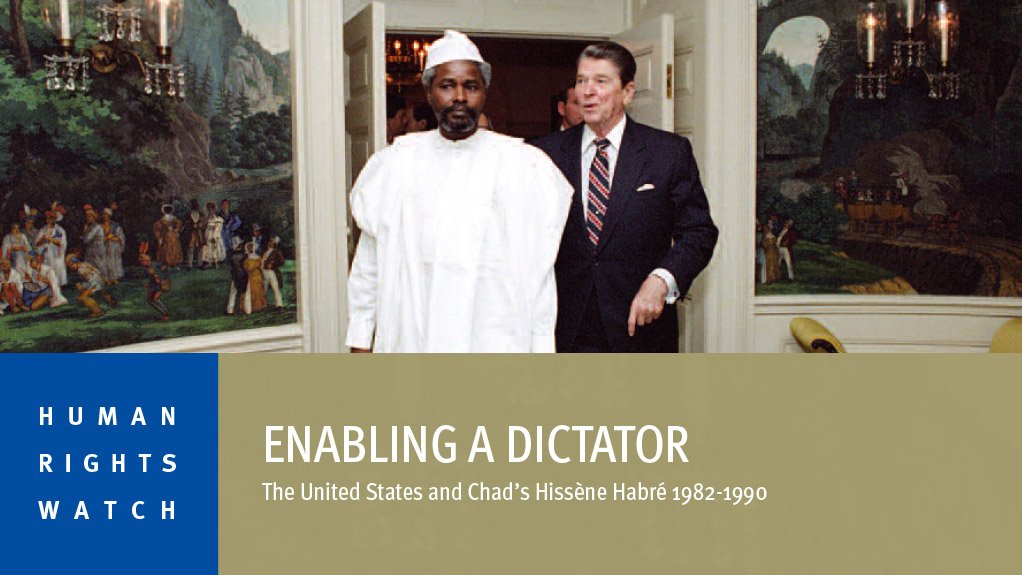- Enabling a Dictator – The United States and Chad’s Hissène Habré 1982-1990 (July 2016)0.98 MB
n July 20, 2015, the trial of the former president of Chad, Hissène Habré—facing charges of crimes against humanity, torture and war crimes—began before the Extraordinary African Chambers in the Senegal court system. The New York Times has called the trial a “milestone for Justice in Africa,” the Guardian a “major step forward for justice in Africa,” and Le Monde “a turning point for justice in Africa.” A verdict is expected on May 30, 2016.
The chambers were inaugurated in February 2013 by Senegal (where Hissène Habré has lived since 1990) and the African Union to prosecute the “person or persons” most responsible for international crimes committed in Chad between 1982 and 1990, when Habré ruled Chad.
President Habré and I are convinced that the relationship between our countries will continue to be strong and productive, one which will serve the interests of both our peoples. It was an honor and a great pleasure to have had him here as our guest.
— President Ronald Reagan, welcoming statement to President Hissène Habré at the White House, June 1987
The US government has been one of the strongest international supporters of the Extraordinary African Chambers, and of the effort to bring Habré to court. But it was not always so. In the 1980s, the United States was pivotal in bringing Hissène Habré to power, seeing him as a stalwart defense against expansion by Libya’s Muammar Qaddafi, and therefore provided critical military support to his insurgency and then to his government, even as it committed widespread and systematic human rights violations—violations of which, as this report shows, many in the US government were aware.
This report provides one of the most comprehensive analyses to date of that support. Drawing on US government documents obtained under the Freedom of Information Act and documents from Hissène Habré’s own political police uncovered by Human Rights Watch in Chad, as well as the public record, it sets out how US officials were aware of the abuses and atrocities perpetrated under Habré but chose to look the other way in the face of perceived strategic interests.
Report by the Human Rights Watch
EMAIL THIS ARTICLE SAVE THIS ARTICLE
To subscribe email subscriptions@creamermedia.co.za or click here
To advertise email advertising@creamermedia.co.za or click here











